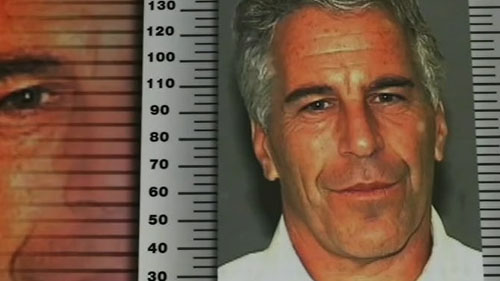| Recent Featured Videos and Articles | Eastern “Orthodoxy” Refuted | How To Avoid Sin | The Antichrist Identified! | What Fake Christians Get Wrong About Ephesians | Why So Many Can't Believe | “Magicians” Prove A Spiritual World Exists | Amazing Evidence For God | News Links |
| Vatican II “Catholic” Church Exposed | Steps To Convert | Outside The Church There Is No Salvation | E-Exchanges | The Holy Rosary | Padre Pio | Traditional Catholic Issues And Groups | Help Save Souls: Donate |  |









 " />
" /> " />
" /> " />
" /> " />
" /> " />
" />




Historical Examples Of Approved Theologians Teaching Error
Bro. Peter Dimond A false doctrine has become somewhat widespread in our day among those who deny the Church’s teaching on salvation and baptism. The error involves elevating the fallible writings of certain ‘approved’ theologians to the status of the Magisterium. This is a grave mistake which denies the true rule of faith (the magisterial proclamations) by substituting another in its place (the fallible teaching of theologians). Having adopted a false rule of faith, these people fall into various errors and heresies, especially on the issue of salvation. This file will be dedicated to historical facts which completely expose the falsity of such a position. This file will be expanded as time permits. Some adherents of the aforementioned view even believe that it's generally inappropriate to quote primary sources (i.e. papal encyclicals, councils, ex cathedra pronouncements, etc.) to prove a point! According to them, a Catholic should only cite what theologians wrote about the meaning of those pronouncements, and they often waste their time arguing endlessly about what various fallible or modernist theologians said on this or that issue. This is truly outrageous and heretical nonsense, a disastrous and false man-centered methodology. They are faithless and deceived. Their grave error is a consequence of their failure to believe in Jesus Christ and what He instituted in the Papacy. Since they worship man rather than God, they resist Christ’s true voice and His true rule of faith. The true faithful know that the final word and the true rule of faith rests with the Magisterium and with the proclamations promulgated by the Chair of St. Peter. St. Peter and his successors were endowed with a protection not given to other members of the Church.
THEY DENY THE VERY PURPOSE OF THE PAPACY
The very purpose of Jesus Christ’s institution of the Papacy upon St. Peter was that popes, endowed with a unique protection of infallibility, could define, once and for all times, the truth of Christ on a matter. By adhering to and utilizing what the popes have defined without deviation, Catholics would be freed of the mere opinions of men. That is the Church’s teaching on the purpose and use of dogmatic pronouncements. Notice that the Council of Trent declares that its dogmatic canons were promulgated so that the faithful, having access to the true rule of faith, could recognize the truth and reject errors. Since the adherents of the false methodology described above reject the true rule of faith (the Papacy), in their bad will they elevate a foreign one in its place. Their false, man-made rule of faith is exposed logically and historically by various facts and arguments. Even though we’ve covered many points on this issue, this file will summarize key historical examples that thoroughly refute their grave mistake.A CHALLENGE ON ‘BAPTISM OF DESIRE’ AND THEOLOGICAL STATUS REFUTED
This issue is, of course, quite relevant to the controversy about ‘baptism of desire’ (BOD). Since magisterial and dogmatic arguments demonstrate that ‘baptism of desire’ is a false doctrine, defenders of BOD often resort to arguing that it’s impossible for ‘approved theologians’ to have taught ‘baptism of desire’ if previous magisterial or dogmatic statements contradicted it and taught the absolute necessity of water baptism. Believing that ‘approved theologians’ are the rule of faith, they consider it unthinkable that an approved theologian or theologians could contradict something previously declared by the Church. One BOD heretic objected thus:APPROVED THEOLOGIANS TAUGHT ERRORS ON THE CANON OF SCRIPTURE AFTER THE COUNCIL OF FLORENCE’S SOLEMN DECLARATION ON THE MATTER
In the bull Cantate Domino (Decree for the Jacobites - 1441) at the Council of Florence, Pope Eugene IV solemnly declared the “books” which the Holy Roman Church “accepts and venerates” as inspired and having God as their author. The list given by the Council of Florence included the deuterocanonical books (Tobit, Judith, Wisdom, Sirach, Baruch, 1 and 2 Maccabees). These are the seven books of the Old Testament that Protestants reject. St. Alphonsus acknowledged that Florence declared the list of inspired books. Most importantly, in his 1893 encyclical Providentissimus Deus, Pope Leo XIII referred to the Council of Florence’s decree on this matter (in the bull Cantate Domino) as “solemn”. Therefore, the bull Cantate Domino, which included a declaration about the list of inspired books, was a “solemn definition” of the Catholic Church.YET, AFTER FLORENCE, MANY APPROVED THEOLOGIANS CONTRADICTED FLORENCE’S DECLARATION
However, after the Council of Florence (before the Council of Trent) some of the most distinguished and learned theologians in the Church held and published the erroneous view that the seven deuterocanonical books were not part of inspired Scripture! Perhaps the most important example in this regard is Cardinal Francisco Ximenes in his famous Complutensian Polyglot Bible. This celebrated Bible was dedicated to Pope Leo X and published in 1520, shortly after Cardinal Ximenes’ death in 1517. Pope Leo X approved Cardinal Ximenes’ Complutensian Polyglot Bible. In his preface to the Bible, Cardinal Ximenes excluded the deuterocanonical books from the inspired books that can be used to prove ecclesiastical doctrines. Concerning those books, he wrote: “The books which are without the canon, which the Church receives rather for the edification of the people than for the establishment of ecclesiastical doctrines are given only in Greek, but in a double translation”. That means that after the Council of Florence, a famous cleric, in a Bible approved by Pope Leo X (though not in an infallible capacity), denied the inspiration of the deuterocanonical books. Yet, Ximenes is not the only cleric who made this mistake after the Council of Florence. Cardinal Seripando, a celebrated theologian, a legate of Pope Paul III, and a key figure at the Council of Trent, was also an opponent of the deuterocanonical books. The same is true of St. Antoninus, Cardinal Thomas Cajetan (the pope’s representative to oppose Martin Luther), and others. The following summary by Fr. Francis E. Gigot (1859-1920) is quite interesting. (Note: Gigot is accused by some of modernism, but that is irrelevant to this issue. In the following passage he is simply summarizing facts.) These facts prove that a council can solemnly declare something and ‘approved’ theologians can subsequently fail to recognize it or the significance of it. This case completely refutes the aforementioned objection and the false methodology of salvation heretics in our day. It exposes the folly of man-worshippers who confuse the writings of approved theologians with the Magisterium, as if the former are necessarily protected while the latter is to be redefined by them. And this is just one historical example. We have covered others, and we will continue to bring forward examples in this file as time permits. These facts demonstrate that theologians and popes (in their fallible capacity) can be completely unaware of (or wrong about) what a previous council declared without necessarily becoming heretics. They can be wrong about the theological status of a truth. That’s why we must adhere to and profess what the popes and the Magisterium officially teach, not what theologians say if there is any contradiction.THE EVENTUAL SCHOLASTIC POSITION, THAT THERE IS ONLY ONE SUBSTANTIAL FORM IN A MOBILE BEING, WAS FIRST REJECTED BY THE COMMON TEACHING OF THEOLOGIANS IN THE MIDDLE AGES, INCLUDING VARIOUS DOCTORS OF THE CHURCH; IT WAS CONDEMNED AT PARIS AND OXFORD, BUT LATER IT WAS GENERALLY ACCEPTED
This is another example of approved theologians teaching error. It reminds us again why the Chair of St. Peter, not theologians, is the final word on matters of faith. The Papacy has been given a unique protection and infallibility that was not granted to individual theologians.A COUNCIL AT THE TIME OF ST. CYPRIAN FALSELY TAUGHT THAT HERETICS COULD NOT CONFER BAPTISM VALIDLY
In this well-represented African council in the 3rd century, St. Cyprian (a doctor of the Church) and dozens of other bishops taught that it was "apostolic tradition" that heretics cannot validly baptize. They were wrong. In the letter to Jubaianus that is associated with this council, Cyprian also taught that an unbaptized martyr can be saved. He was wrong on that as well.DENIAL OF THE IMMACULATE CONCEPTION
Within about 200 years, four doctors of the Church (St. Bernard, St. Albert the Great, St. Bonaventure and St. Thomas Aquinas) and many other theologians denied the Immaculate Conception – a true and biblical doctrine. It’s a reminder that, although one can learn much from doctors of the Church, they are not infallible. They are not the Magisterium.Mary's Sinlessness: A Biblical Documentary
*Note: this file will be expanded with more examples as time permits.Sign up for our free e-mail list to see future vaticancatholic.com videos and articles.
Recent Content
^